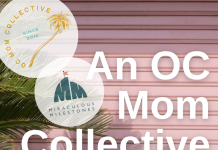
First of all, welcome to a very special club. I don’t know if enough people are telling you how important it is to be the parent of a trans/non binary kid so let me be the friend shooting off confetti and running across the room to squeeze you. We’re in this together and I’m going to give you something someone else gave me when my own kid came out: the sense of a friend reaching across the internet to hold your hand and walk alongside you. We’ve got this.
My son was assigned female at birth and I never had reason to question how his gender would evolve or unfold throughout his life. Why would I question it? I had been raised in a fundamental christian home and had lived my life in a bubble of binaries. Everything in our mindset was an either/or. People were this or that, good or bad, male or female, introvert or extrovert, and on and on and on. One thing you should know about my son is that he is a magnet. Everywhere he goes people gravitate to him like he’s the moon and we’re all the tide. His very presence pulls the world in and, without fail, he makes people feel seen and heard and loved. By the time they move out from him they’re shimmering with a renewed sense of belonging in the world. The first time I saw it in action was his first birthday when he showed genuine joy and appreciation over every single gift, hugged every gift giver without being prompted to, and the party ended with glowing adults shaking their heads over the sheer joy leaking from this tiny human. He’s always been special; a container of something humanity has been trying to return to for a very long time. And your kid is that kind of special, too. Whatever incredible thing they were born with that made them aware they were MORE is a gift we want to see unfurl wild and whole into the world.
My son came out when he was 13, nestled into middle school and floating through the first year of my divorce. But before he came out, he tested the waters because, admittedly, I was a giant question mark. I didn’t have trans friends, I didn’t discuss trans issues. How could he know if I were safe for the vulnerable process of coming out as trans? The summer before 8th grade we were at a water park with his 2 siblings and my sister when he caught my eye over a snack table and said (with a trembly voice), “ Mom… I’m questioning my gender.” And friend, I didn’t even know what that meant. I looked at him with new eyes; scanned the heavy t-shirt draped over his swimsuit, the new short haircut hugging his head, and I said the only thing we can say in a moment like that, “tell me more.” A few months later he came into my room, cried with anticipation, and told me he was a boy. Now here’s what I know I did right: I had spent those few months since the waterpark researching. I had gone looking to understand, not what being transgender means from the cisgender (this term just means identifying with the gender you were assigned at birth) world’s perspective, but directly from the perspective of trans people. So, by the time he told me a sacred truth about himself, I was already on the path to being his ally. I was already positioned to open my arms and welcome the son who I had once mistaken for a daughter.
Maybe you didn’t handle that moment well and I want to wrap my arms around you and tell you it’s okay, we can keep moving forward. We can handle the next moment well and it’s never too late to make an amends. Recently I was listening to an episode of We Can Do Hard Things with Glennon Doyle and she was interviewing Dr Galit Atlas. Dr Atlas said that statically ‘good enough’ parents only get it right about 30% of the time. That means that over 70% of the time we’re messing up and learning how to repair with our kids. And the good news is that secure attachment develops through the process of that repair. So, if you got the first moment wrong with your kid, turn back in the direction of repair. It’s not too late to stitch the relationship back together by taking a mouthful of ownership and committing to the beautiful work of being the parent of a brilliantly trans kid.
I stumbled around quite a bit in the early parts of stepping into my new identity as the mama of a transgender boy and had to make amends as I went. The goal is not that we do it perfectly – what an unrealistic expectation. Instead the goal is that we stay teachable and that we don’t expect our kid to be the ones to teach us. That would be an incredibly heavy burden for a kid to bear and our job is to keep the heavy burdens off of them for as long as possible. You and I, we’re capable adults, so let me offer this: I’ll help you carry it. You and me – the great big us of this special club – we’ll do this together so our kids never have to.
Let me tell you some of what I learned early on so that you can hold it close to your heart and feel the warmth of a friend who has gone before you, the solidarity of knowing that maybe you can avoid some of the natural missteps I (and some of my family members) made.
1. This is not a death.
I know it might feel like it is. The child you thought you were raising just seemingly changed before your eyes. The world you envisioned of ingrained gender roles just shifted like an earthquake and now nothing in the house is where you left it. There’s something wobbly about finding out your daughter is really your son, your son is really your daughter, or your child has always been something more – a soul that doesn’t fit into the binaries of either/or. The most common thing I hear from parents, grandparents, aunts, uncles, neighbors, and family friends is, “I feel like I’m mourning the death of a child I loved” and I understand that feeling. There’s a sense of loss that comes with change, it’s inevitable. But I want to suggest that it isn’t quite a death. It’s an evolution. The child you thought you were raising is still the child you’re raising. They’re just asking you to let their truest self breathe in the place that should be safest: home. I went through a period of grieving, too. You are allowed to grieve. AND (because this is a both/and) can you grieve in a way that doesn’t put a burden on your kid? For someone who has just had a rebirth, a welcoming into their own becoming, being told they have actually died is heartbreaking. It’s kind of devastating to find out your family isn’t celebrating with you, they’re in fact mourning the loss of their perception of you. Making this a death centers us, the parent, rather than them, the kid. And coming out is first and foremost about the person who has come out. So take your grief to safe spaces that don’t overlap with your kid’s spaces and work it out with other parents who have been initiated into the special club. For some parents it helps to have a ritual of sorts. You could write a goodbye letter to the life you thought you were going to live – the life of a mother of a daughter/son. If you write the letter, burn it right away so your kid never finds it. Say what you need to say and let go of your expectations because, at the end of the day, that’s all they were: our own expectations.
2. Fill your feed with content from trans people.
This is always the first piece of advice I extend to my fellow club members. The best way to learn how to be the number 1 ally and advocate for our kids is to reshape how we see the world. Chances are you, like me, weren’t very aware of what the world feels like for trans people or even what it means to be trans. I had been conditioned into a very narrow worldview and had no idea how vibrant, how expansive, how lovely trans expression was. There is no better way to personally evolve than to follow and learn from trans people who are willingly sharing their lives with us. Trans people are not a monolith. Their experiences vary person to person and there is so much to learn from just bearing witness. The one very important thing to remember is that we aren’t following them in order to question their existence or to ask them to explain themselves. We’re just there to absorb, to be changed in ways that are vital to the existence of our own kids, to learn. I suggest spending the first 6 months or so not commenting, just listening. A really good place to start is with this episode of the Man Enough podcast with Alok Vaid-Menon (they are my all time favorite person to learn from). You can also find Alok’s instagram here.
3. You are the first enforcer of boundaries on behalf of your kid.
There are going to be people in your community, probably in your own family, who are unwilling to be a supportive force in your child’s life and, baby, you are the door between those people and your kid. While they’re young you are the first gate people have to pass through in order to access your children, so be a strong one. Be a boundaried one. When it was time to tell my parents and siblings that my son was trans he asked me to do it for him. He was scared of my very religious family’s reaction so he asked me to be the one to tell them, so you bet your buttons I did. And here’s the thing about how I did it: I moved with so much love and with some really firm boundaries. The boundaries looked like this:
- I am telling you a fact about my kid. This isn’t a debate, it’s a reality. You’re being given the sacred gift of knowing it.
- There are two acceptable responses: you can celebrate and affirm him or you can be quiet. If you choose to be quiet you need to know that eventually that silence will strain and fracture the relationship. But the hard line in the sand is that you can never ask him to defend of justify his existence. If you feel confused you can come to me and I can point you to resources that will help you explore the trans experience. The ultimate work to be in this club falls on each of us individually and I truly hope you’ll chose to do that work because the only energy crossing over our threshold is love and celebration.
You should know that a few key people in our extended family didn’t choose to do that work and, although they respected the option of staying silent, the relationships did inevitably fray. A few years ago my father cut us all off because he just couldn’t step over the threshold with love and, as devastating as that has been, I’ve had to respect that that is the choice he’s made. And, if it comes down to my kid or anyone else, I will always choose my kid.
It doesn’t always end up that way though and I want to give you another story that will hopefully encourage you to hold those boundaries with love. My ex husband’s mother has always been the world’s best grandma. She was the one changing diapers, helping me get kids in and out of carseats, always saying yes to babysitting, coming along with me on trips even after I had left my marriage. She is the kind of grandma/mother in law we all hope for. AND (again this is a both/and) she really struggled when my son came out. She constantly misgendered him (using she pronouns) and deadnamed him (this means she kept using his old name) to the point of deep pain for my kid. He talked to her about it a few times and she promised to get better, but she just didn’t put in the work to love him in the one way he was asking her to. Eventually his birthday rolled around and he told me he didn’t want her to come to the big family dinner because it was his birthday and he just couldn’t stomach being deadnamed or misgendered on that one day. And I am the boundary holder because he is still a kid, so I’m the one who called her and told her she couldn’t come. She was devastated. It broke her heart and I truly understand why. She said, “shouldn’t I be given a grace period? I’m grieving, too.” And, oh friend, in that moment I understand where we were at. I told her, “you’ve had a grace period though. It’s been 6 months and you haven’t even truly tried to understand why it hurts him so much every time you do this. The grace period is over. It’s time to get on board or not, but he’s allowed to pull away if you’re committed to harming him on behalf of your own grief.” I offered to meet and be a sounding board for her process or to share resources again, but we didn’t hear from her for a little bit. And that’s okay. She needed time to make a decision for her own self. Eventually she decided that she was willing to step over the social norms she had been raised with in order to love her grandson. They have a thriving, loving, celebratory, safe relationship again and she has often said how glad she is for the catalyst he gave her. She needed to look deeper into some other parts of her life and he gave her reason to.
There is so much more I could say, but I know being initiated into this special club can be overwhelming so I’m going to end this conversation with this: affirming and celebrating your child can be a matter of life or death. The suicide rates among trans and queer kids are astronomical but it’s not because they hate themselves. They know the world hates them and that is a lonely, desperate thing to experience for anyone – especially for a child. Your active participation in protecting them, advocating for them, celebrating them, and holding every loving boundary on their behalf can be a life changing experience for both of you. Your love matters. Your love in action matters most of all. Trans kids who are affirmed by their families have much lower rates of attempted suicide. Think about that, prioritize that. We have the opportunity to not only create a joyful, safe life for our own kids, but for other trans kids as well. We’ve got this, friend. You and me and us – the entire special club of parents of trans/non binary kids.
Resources lovingly gathered for you:
Statement from American Association of Pediatrics
The Jefferey Marsh












